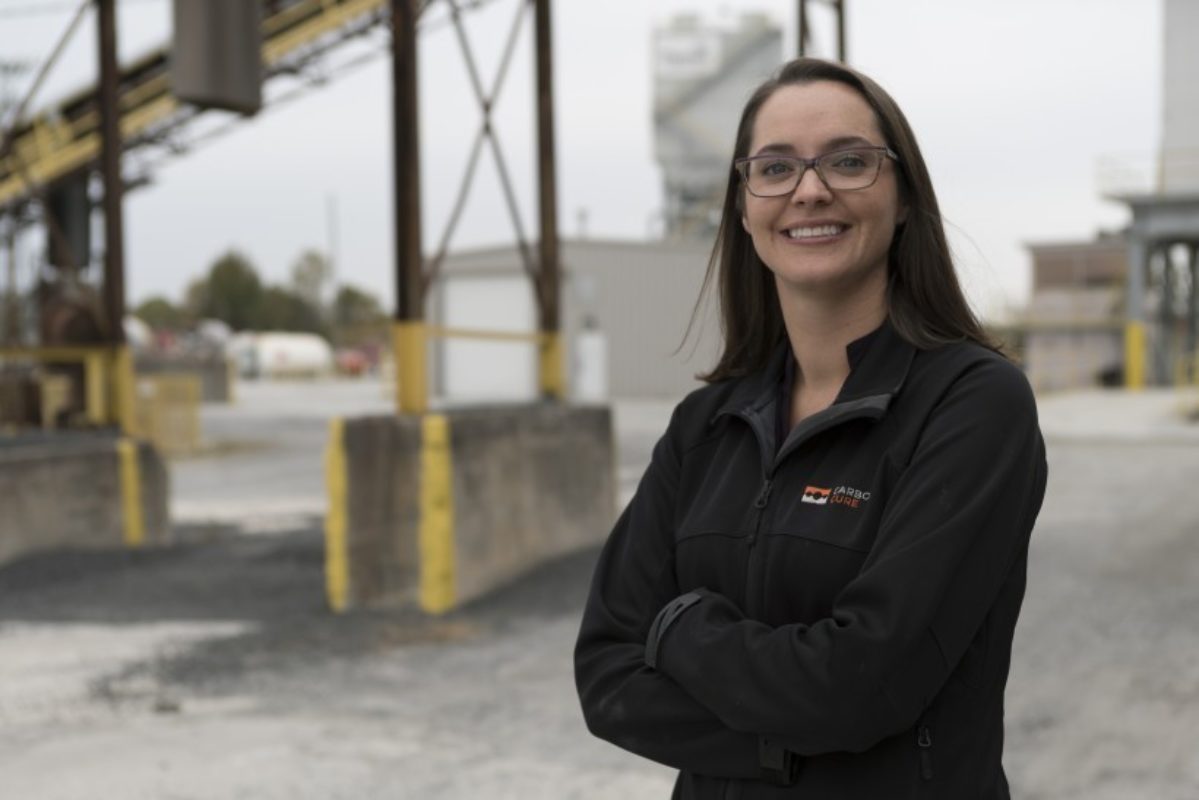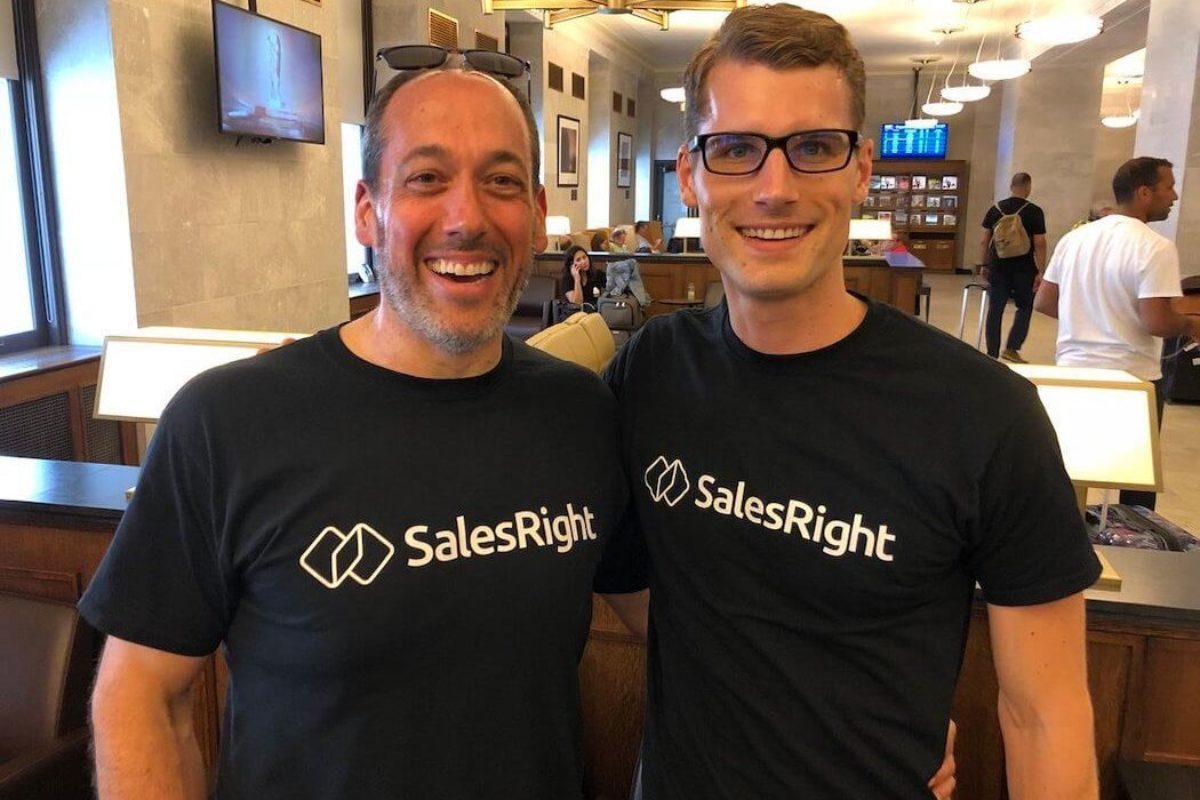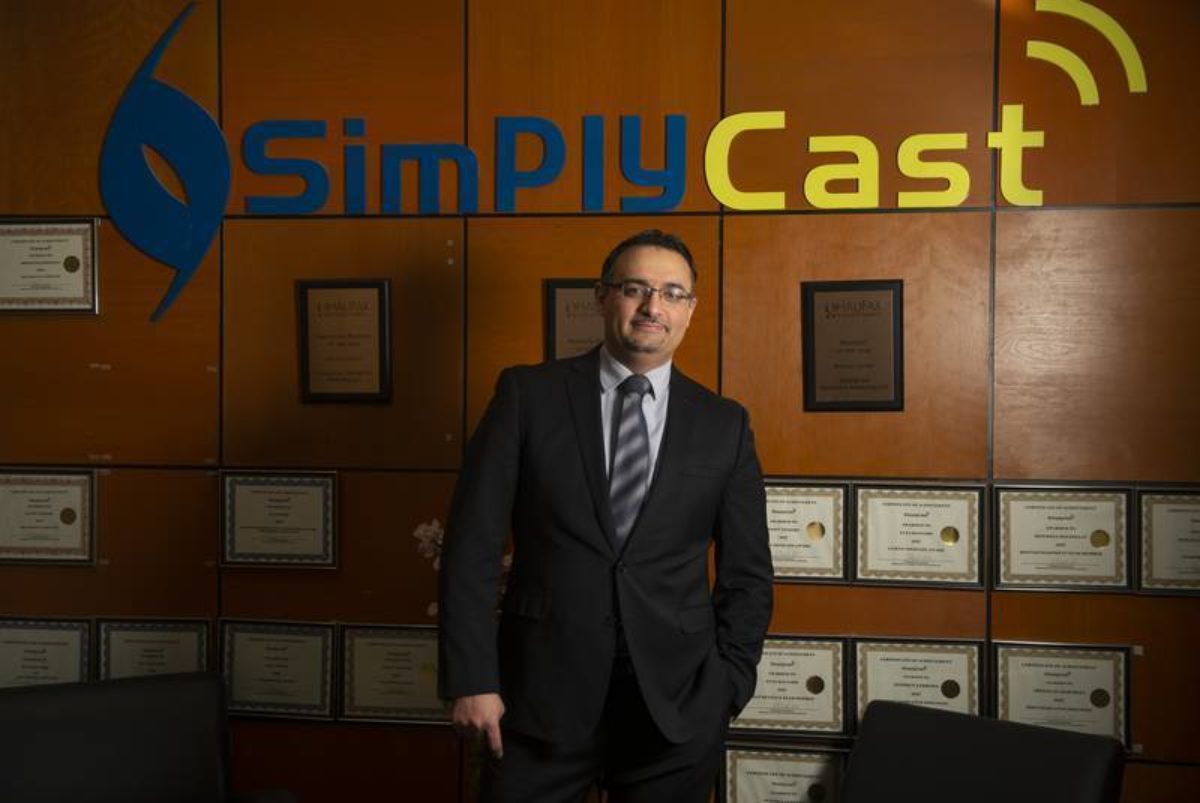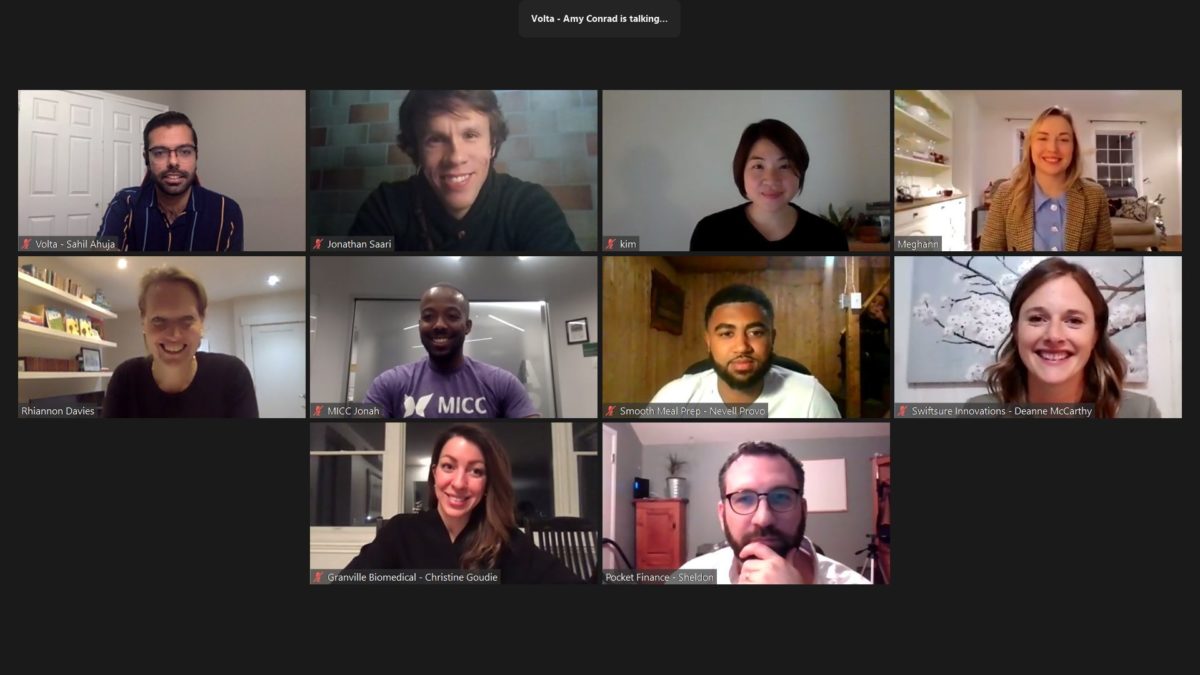CarbonCure Leads Growth in Cleantech Sector Halifax
December 4, 2020
By Carol Moreira
The cleantech sector in the Halifax Innovation District and the region is booming, led by CarbonCure Technologies, a leading producer of innovations that remove carbon dioxide from the air. CarbonCure’s plans to cut atmospheric carbon got a boost when Big Tech companies began buying expensive carbon offsets with the aim of becoming carbon neutral.
“It’s a really big deal,” CarbonCure President Jennifer Wagner told Entrevestor. “It helps us to accelerate our plans but also brings us an entirely new source of revenue.”

CarbonCure’s technology produces a strong, cost-effective concrete by injecting it with carbon dioxide. The innovation is used in about 300 concrete facilities in North America and Asia.
In January, Microsoft said it intends to capture as much carbon by 2050 as it has released since forming in 1975. The company announced a US$1 billion fund to buy carbon offsets. Other giants like Shopify, Amazon, and Stripe announced similar plans, putting millions of dollars each year into the market for carbon offsets.
CarbonCure is one of four companies chosen by Stripe to help capture and store more than 6,500 tons of carbon.
“When we sell a credit to someone like Stripe, we share that credit revenue with our customers,” said Wagner. “That incentivizes the concrete producers to do all they can to reduce more CO2. It’s a carrot for them to drive down CO2 emissions as much as possible.”
CarbonCure also recently raised a funding round led by Amazon and Breakthrough Energy Ventures. The round followed the announcement by Shopify that its $5 billion Sustainability Fund would purchase carbon offsets from the Nova Scotia company.
Data released by Entrevestor, revealed that the region launched 19 new companies last year, compared to just six in 2018. The companies also grew their staffs by 75 percent last year.
Ocean Supercluster Backs Ventures and Youth
As it ramps up its investments in oceans research and oceans-related companies, Canada’s Ocean Supercluster announced its backing of four more projects that will grow the blue economy, help the environment, and boost diversity.
The four projects will be worth a total of $12.2 million, with the Supercluster contributing almost $6 million, and remaining funds provided by each project’s partners.
“To date, Canada’s Ocean Supercluster has $200 million in total project commitments, more than 42 projects approved (of which 36 have been approved since March 2020),” Vice-President of Government Relations and Communications Nancy Andrews told Entrevestor.
The Ocean Supercluster is one of five Canadian innovation superclusters, which bring together government, business and academia to create international centres of excellence.
In 2018, the federal government said it would spend $918 million through the superclusters over five years, with partners (mainly private companies) aiming to provide $1.09 billion in spending.
The four new projects are:
- The Smart Protective Coatings Project led by Graphite Innovation and Technologies, which will boost the use of GIT’s graphene-based protective coatings on marine vessels. GIT’s non-toxic coatings cut fuel consumption and underwater radiant noise.
- The Vitality Project, led by Pisces Research Project Management, which will work with data produced by the Canadian Integrated Ocean Observing System and apply it to the sectors of tidal power, aquaculture, and offshore wind. This project will also create training programs that address skill gaps, creating 10 jobs and educating 100 trainees.
- XO-G2 Project, led by Xocean, an Irish venture with operations in HRM. The initiative will develop new Uncrewed Surface Vessels which will operate autonomously over 3,000 nautical miles, collecting ocean data at lower costs, risks, and environmental footprint than current methods.
- Ocean Allies, led by Pisces Research Project Management, which will promote diversification in the ocean sector.
The Supercluster also announced a new program to help young Canadians by linking youth with education and employment in the sustainable blue economy. The Blue Future Pathways Project will focus on Indigenous and under-represented people and those who live in remote locations.
The project is being headed by the Students on Ice Foundation, a charity that teaches young people about the Arctic and sustainability. The initiative intends to enlist a minimum of 250 employers, with 2,500 participating youth.
Dalhousie Scientists Work on Extending Cell Life
Scientists from Dalhousie University are partnering with an Ohio biotech venture on using a molecule found in Arctic fish to extend the life of human cells.
The American venture, ProtoKinetix, has obtained a molecule from fish swimming in sub-zero temperatures and patented it as AAGP. This “anti-freeze protein” can extend the life of cells and the company hopes to apply it to medical fields including dermatology, ophthalmology, and transplant support.
“Most biotechnology companies are born out of a long history of funding scientific research and this company is not any different,” Dr. Keith Brunt, a Dalhousie-based researcher and entrepreneur.

“It researched the cells in Arctic animals, looking into what allows animals to be frozen or to actually function in temperatures below zero. Imagine the stress and strain these temperatures must put on the cells.”
Brunt is initially focusing on using AAGP to treat dry eye disease. Firstly, the team must confirm the compound is safe. “If it’s safe enough to put into the eyes, it’s safe enough to put anywhere else on the body,” he said.
ProtoKinetix’s shares are traded over-the-counter and the venture has a market value of around US$25 million.
“A U.S. company like this working with and funding Canadian researchers is huge,” said Brunt. “It’s converting our knowledge into products, and this is what keeps our students here.”
NS Recognized as Blending GHG Reduction and Job Growth
A report from the Canadian Institute for Climate Choices recognizes Nova Scotia as a leader in cutting greenhouse gas emissions while growing its economy.
The report, Eleven Ways to Measure Clean Growth, highlights how Nova Scotia has achieved steady job growth while achieving the second-largest reduction in greenhouse gas (GHG) emissions nationally, after New Brunswick.
Nova Scotia’s GHG emissions fell by 26 per cent between 2005 and 2018, GDP rose by 14 per cent after inflation, while job growth rose by three per cent, the Atlantica Centre for Energy reported. These growth rates are below national averages (24 per cent growth in GDP and 14 per cent growth in jobs) but Nova Scotia’s numbers are consistent with population growth and unemployment levels were stable.
“The data shows it’s possible to grow the economy while addressing climate change – as long as policy is designed to achieve environmental, economic and social benefits simultaneously,” said Rachel Samson, Director of Clean Growth at the institute.
The report said Canada is creating job opportunities in low-carbon sectors and increasing investment in clean tech innovation and trade, but progress is uneven across sectors, regions, and socio-economic groups.
SalesRight Acquired by FastSpring
SalesRight, a company which helps B2B Software-as-a-Service ventures simplify their pricing, was purchased by California-based FastSpring for an undisclosed sum.
FastSpring will use its new software to give clients’ sales teams interactive quoting and digital signature tools.
"Bringing SalesRight and FastSpring together is a game-changer for SaaS companies," CEO Wilson said in a statement. "…we're completely aligned in building the most complete ecommerce platform for software companies."

The pandemic has not slowed SalesRight. In March, the venture closed an equity funding round of $600,000 (having raised $325,000 last year).
“Bringing a company like FastSpring to Halifax and the region and having them continue to invest here is just fantastic,” said Wilson.
SimplyCast Tracks Virus and Assists Youth
SimplyCast, an automated marketing company, has launched a product that allows businesses to trace clients who have visited their premises.
In a statement, the company said its mobile solution will allow businesses and organizations to register visitors using their cell phones. The product will make it easier to trace people who’ve come into contact with someone who develops COVID-19.
SimplyCast’s method ensures accuracy and cuts the workload for staff by automating contact tracking, the statement said. Visitors can record their visits to businesses and organizations by sending a text on entering the premises. If a case of COVID-19 is noted, the records can be shared with public health officials.
The service is being offered free to Canadian businesses for the rest of 2020.

SimplyCast also said it plans to employ 100 interns next year with the aim of helping post-secondary students through the pandemic. The company is seeking developers, software testers, and marketing analysts.
“Young people need opportunity and I think we should be doing this as corporate Canada,” company CEO Saeed El-Darahali told Entrevestor.
He said the company has the capacity to hire more students because so many of its 40 full-time staff are currently working from home.
SEDDI Building Halifax Team
SEDDI, which focuses on the digital design of clothes and textiles, is establishing its commercialization team in Halifax with a $477,075 loan from the Atlantic Canada Opportunities Agency.
In creating software for designing garments and fabrics, SEDDI is addressing a big issue in the $2 trillion clothing industry, as the fact fabrics stretch and curve makes it hard to simulate fabric on digital platforms.
“If you look around your office now, everything you see was designed on a computer… That’s true of almost everything except clothing…soft materials are really, really hard to simulate,” Alan Murray, Vice-President of Product and Co-President, told Entrevestor.
More than 70 people currently work for SEDDI, including the 10-person commercialization team in Halifax. There are also teams in Madrid and New York.
The company’s total addressable market is worth about $22 billion, with an early focus on industry supply chains, Murray said. SEDDI also aims to cut pollution by refining the production of clothes. The garment industry produces 1.2 billion tons of greenhouse gas emissions annually and 12.8 million tons of clothing are dumped in landfills.
The health crisis has helped the company, Murray said, as stores have closed and supply chains been halted. “This has increased the demand for digitally based supply chain solutions.”
The Rounds Focuses on Pancreatic Cancer
The Rounds, a social network for Canadian doctors, launched a campaign to raise up to $5,000 for pancreatic cancer, a disease that impacts 5,500 Canadians for the first time each year. For every Canadian doctor who joins The Rounds’ cancer community, the venture gives $5 to cancer charities.
“With 23,000 physicians and growing in The Rounds network, we are confident in our ability to spread awareness in the medical community, to better patient outcomes and provide a quicker diagnosis for those living with pancreatic cancer,” Tim Rice, company CEO, said in a statement.
The Rounds allows doctors with different specialties to discuss healthcare on a physician-only platform. Both The Rounds and its sister pharmacist-centred network QID have grown during the pandemic as professionals seek information on COVID-19.
LED named export star
LED Roadway Lighting, a manufacturer of smart, low-energy street lighting, has been named a cleantech Export Star by Export Development Canada (EDC).
Founded in 2007 by CEO and President Chuck Cartmill to manufacture LED-based lighting fixtures for street lights, LED has also launched its Liveable Cities division, which helps governments cut energy consumption. The venture’s smart street lighting products are used in more than 60 countries.
“EDC’s Account Performance Security Guarantee has allowed us to expand our capability with our bank to issue both bid guarantees and performance guarantees,” Cartmill said in a statement.
“With this program, we’re able to issue standby letters of credit as guarantees required under contracts, or as part of bids, without impacting our operating line of credit.”
Volta Awards $25k to Five Startups
The Volta Cohort Pitch Event awarded $25,000 each in equity funding to five early-stage startups.
Prior to this, the seventh, such event, the program had awarded $725,000 to 29 startups. The recipients have since raised $9 million and have over 100 employees. The recent pitching event was virtual, and the 16 participants came from all Atlantic Provinces.

Winners in the Halifax Innovation District included:
- Smooth Meal Prep, which delivers healthy meals to homes. The company had $200,000 in sales in its first year and is planning an app to help people manage fitness regimes.
- Pocket Finance is building a personal finance mobile app that cuts waste, highlights banking fine print, and boosts financial literacy.
For the first time, Volta said Cohort members are eligible for follow-on funding of $25,000.